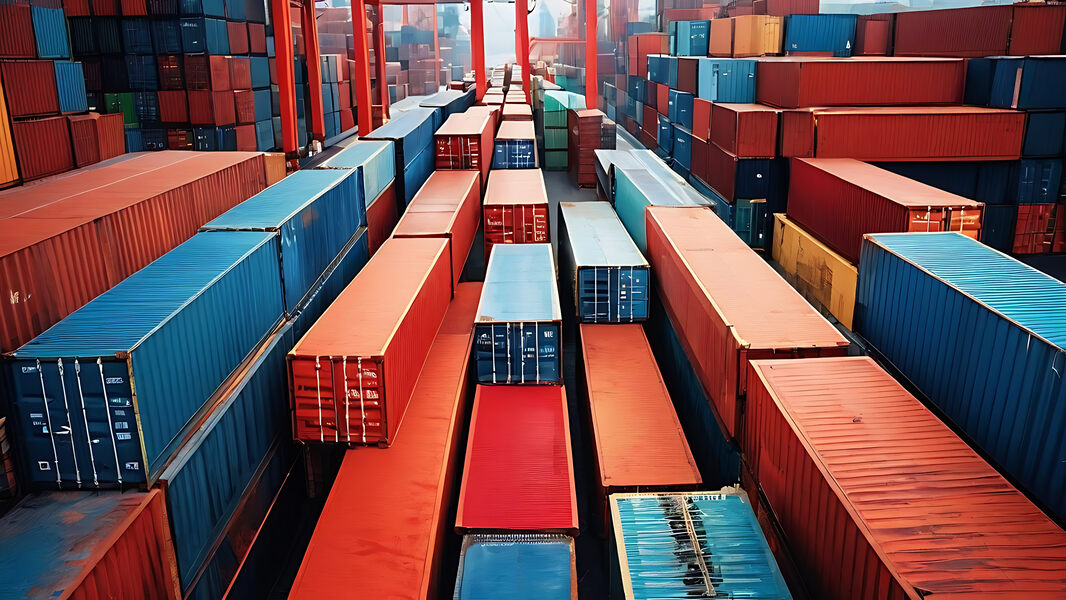Why talent management is crucial in transforming business models
Renewables trailblazer Orsted and tobacco giant Philip Morris have transformed their business models – fueled partly by HR best practice. ...

by Simon J. Evenett Published 6 November 2024 in Competitiveness • 5 min read
It would be a mistake to associate this inward turn only with Republican politicians; the Biden Administration took various measures in May 2024 to restrict US market access to imports and the new administration post the November 2024 election may accelerate protectionist measures.
Given that the US imports more than $3tn worth of goods each year, loss of access to the US market would have a significant adverse impact on the top-line revenue of many foreign firms.
But sectors differ in their exposure to US markets in both absolute and relative terms, so blanket statements about exposure to America’s inward turn are unwise. Using international trade data that leverages the UN method of grouping products into “chapters,” a recent Global Trade Alert briefing analyzes which foreign suppliers are most dependent on US market access and therefore are most vulnerable to further protectionist measures.
A foreign sector is more vulnerable to the loss of access to the US market when:
The following suppliers to the US are deemed to be the most vulnerable to high tariff charges or restricted market access:
By contrast, the following sectors are less exposed to potential tariff increases:
In eight sectors, growth in imports of non-US products is so weak that full replacement of lost US market sales would, on current trends, not take place until after 2035.
This highlights the importance of penetrating and growing market share in alternative export destinations to hedge against the potential loss of US market access. Geographic sales diversification can help mitigate this trade policy risk.
Even if the US does not escalate its recent policy of imposing higher import barriers, increased trade policy uncertainty will take its toll on investment, market entry, and sourcing decisions. Fortunately, there are plenty of commercial opportunities beyond US markets.

Professor of Geopolitics and Strategy at IMD
Simon J. Evenett is Professor of Geopolitics and Strategy at IMD and a leading expert on trade, investment, and global business dynamics. With nearly 30 years of experience, he has advised executives and guided students in navigating significant shifts in the global economy. In 2023, he was appointed Co-Chair of the World Economic Forum’s Global Future Council on Trade and Investment.
Evenett founded the St Gallen Endowment for Prosperity Through Trade, which oversees key initiatives like the Global Trade Alert and Digital Policy Alert. His research focuses on trade policy, geopolitical rivalry, and industrial policy, with over 250 publications. He has held academic positions at the University of St. Gallen, Oxford University, and Johns Hopkins University.
2 June 2021 • by Mark J. Greeven, Katharina Lange in Sustainability • 6 min read
Renewables trailblazer Orsted and tobacco giant Philip Morris have transformed their business models – fueled partly by HR best practice. ...
1 June 2021 • by Vanina Farber, Patrick Reichert in Sustainability • 3 min read
Where to start and how to maintain the transition to sustainable business models ...
25 May 2021 • by Marco Dall'Orso in Sustainability • 9 min read
Creating a vibrant urban ecosystem – an inclusive, diverse and lively community where people want to live and put down roots– requires a gradual shift of focus from built-environment investment to socio-economic...
20 May 2021 • by John Elkington in Sustainability • 5 min read
Around 70% of the natural world has been destroyed by food production in the past 50 years, but the race is on to reverse the trend ...
21 April 2021 • by Carlos Cordon, Edwin Wellian in Sustainability • 4 min read
Reuse can transform industries that struggle to recycle products, but it can also impact on the viability of the recycling industry. Before designing a circular economy strategy, companies must decide on the...
20 April 2021 • by Jean-Philippe Bonardi, Quentin Gallea, Dimitrija Kalanoski in Sustainability • 5 min read
New research confirms that global air quality improved due to COVID-19 lockdown measures. It also underlines the complexity of policy and lifestyle changes needed to control pollution in the long run. ...
19 April 2021 • by Knut Haanaes, Frédéric Dalsace, James E. Henderson in Sustainability • 5 min read
The first steps towards creating a credible sustainable business, is to clearly frame what sustainability really means for your organization and ensure cross-organizational buy-in....
12 April 2021 • by Knut Haanaes, James E. Henderson in Sustainability • 5 min read
The first steps towards creating a credible sustainable business, is to clearly frame what sustainability really means for your organization and ensure cross-organizational buy-in. ...
6 April 2021 • by Knut Haanaes, Natalia Olynec, James E. Henderson in Sustainability • 4 min read
In the first of a three-part series, we outline why adopting a sustainable business approach is a profitable, future-proof business strategy....
25 March 2021 • by Natalia Olynec in Sustainability • 6 min read
Developing a strong, sustainable business approach creates long-term value and improves the ecological, social and economic environment. But after the turmoil of 2020, where should organizations focus their efforts? Natalia Olynec speaks...
Explore first person business intelligence from top minds curated for a global executive audience